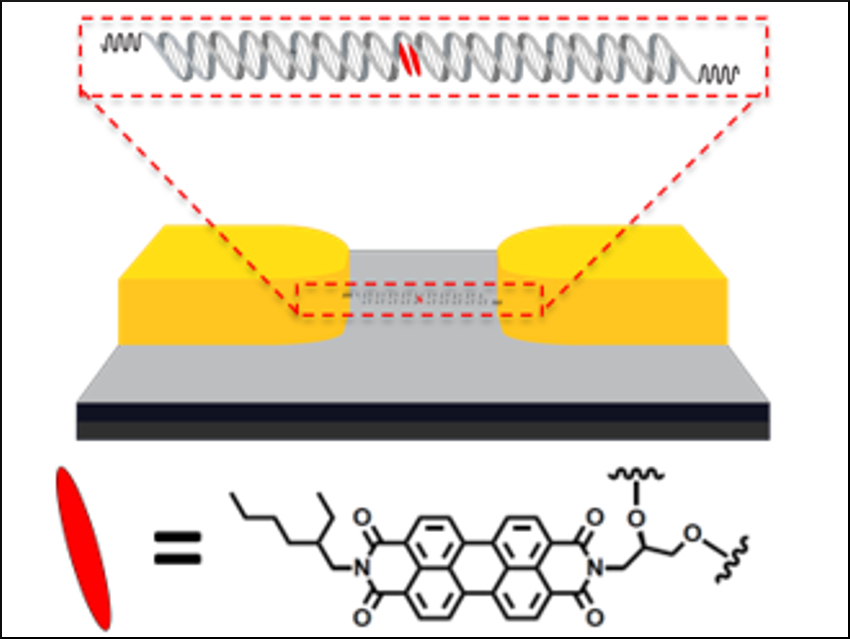DNA is a promising material for nanoscale electronics. This is due to DNA’s well-ordered arrangement of stacked, π-conjugated base pairs. Well-matched duplex DNA, i.e., double helices, could provide charge transport over long distances. In addition, DNA can be used as a scaffold for the precise placement of other conductive molecules and materials, which enables the development of electrical devices.
Jason D. Slinker, University of Texas at Dallas, USA, and colleagues have evaluated the electrical properties of natural and modified DNA molecular wires. The natural DNA molecular wires consist of 60 complementary base pairs. The modified DNA molecular wires are similar, but two A−T base pairs near the center of the wire have been replaced with two perylene diimide (PTCDI) molecules. The wires were prepared from five individual oligonucleotides with complementary sequences.
The team fabricated arrays of nanoscale electrodes and bridged them with the DNA wires to produce two types of single-molecular devices (pictured). By performing current-voltage measurements for these devices, the researchers found that the incorporation of PTCDI within the DNA molecular wires led to an approximately six‐fold enhancement in the observed current levels. The team attributes this effect to the improved charge transport through the PTCDI groups compared with the natural two A−T base pairs found at the site.
- Enhancement of the Electrical Properties of DNA Molecular Wires through Incorporation of Perylenediimide DNA Base Surrogates,
Kuo-Yao Lin, Anthony Burke, Nolan B. King, Dimithree Kahanda, Amir Mazaheripour, Andrew Bartlett, David J. Dibble, Marc A. McWilliams, David W. Taylor, Jonah-Micah Jocson, Majid Minary-Jolandan, Alon A. Gorodetsky, Jason D. Slinker,
ChemPlusChem 2019.
https://doi.org/10.1002/cplu.201800661




